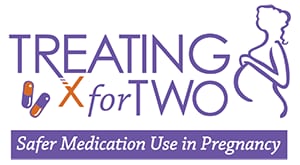Use of ADHD Medicine is Increasing among Pregnant Women

A study from the Centers for Disease Control and Prevention (CDC) found that an increasing number of pregnant women are taking attention-deficit/hyperactivity disorder (ADHD) medicine. The study also found that women who took ADHD medicine during early pregnancy may be more likely to have a baby with some types of birth defects compared to women who did not take ADHD medicine. This is among the first few studies to look at ADHD medicine use among pregnant women and risk for individual birth defects. More research is needed to determine the safest treatment options for managing symptoms of ADHD during pregnancy.
Read the full scientific summary.
Main Findings
- In this study, about 1 in 100 women took ADHD medicine during pregnancy.
- Although rare, the number of women taking ADHD medicine during pregnancy more than doubled from 1998 to 2011.
- Taking ADHD medicine in early pregnancy may be related to these birth defects:
- Although this study found some increased risk for birth defects, it is important to remember that there’s a very low risk of having a baby born with these defects after taking ADHD medicine.
- More research is needed on the safety of ADHD medicines in pregnancy, including risks for birth defects. Data from this study were based on small numbers of children with birth defects, so it adds to very limited literature on ADHD medicine safety during pregnancy.
- Women should talk with their healthcare providers about options for managing ADHD symptoms before and during pregnancy.
- People with ADHD may have trouble controlling impulsive behaviors, paying attention, or may feel overly restless or over active.
- ADHD can affect people of all ages.
- Some healthcare providers prescribe medicine to adults to manage ADHD symptoms.
- Some brand name ADHD medicines include Adderall© (amphetamine mixed salts), Ritalin© (methylphenidate), and Strattera© (atomoxetine).
About this Study
- The study used data from the National Birth Defects Prevention Study (NBDPS), one of the largest U.S. studies aimed at understanding factors that increase the risk for major birth defects.
- Researchers looked at how many women took ADHD medicines during their pregnancy over time.
- Researchers looked at links between ADHD medicine use during pregnancy and having a baby born with certain birth defects.
About Birth Defects
Birth defects are common, costly, and critical conditions that affect 1 in every 33 babies born in the United States each year. Birth defects are structural changes present at birth that can affect almost any part or parts of the body (such as the heart, brain, face, arms, and legs). They may affect how the body looks, works, or both.

Our Work
CDC’s National Center on Birth Defects and Developmental Disabilities (NCBDDD) is working to improve the health of women and babies through its Treating for Two: Safer Medication Use in Pregnancy Initiative. Through Treating for Two, CDC is working with its partners, other federal agencies, and the public to understand trends in medication use among pregnant women and women of childbearing age and to provide women and healthcare providers with information about the safety or risk of using specific medications during pregnancy. This information will allow women and their doctors to make informed decisions about treating health conditions during pregnancy.
For more information, visit www.cdc.gov/treatingfortwo.
More Information
Key Findings Reference
Anderson KN, Dutton AC, Broussard CS, Farr SL, Lind JN, Visser SN, Ailes EC, Shapira SK, Reefhuis J, Tinker SC, the National Birth Defects Prevention Study. ADHD Medication Use During Pregnancy and Risk for Selected Birth Defects: National Birth Defects Prevention Study, 1998-2011. Journal of Attention Disorders. 2020; 24 (3): 479-489.